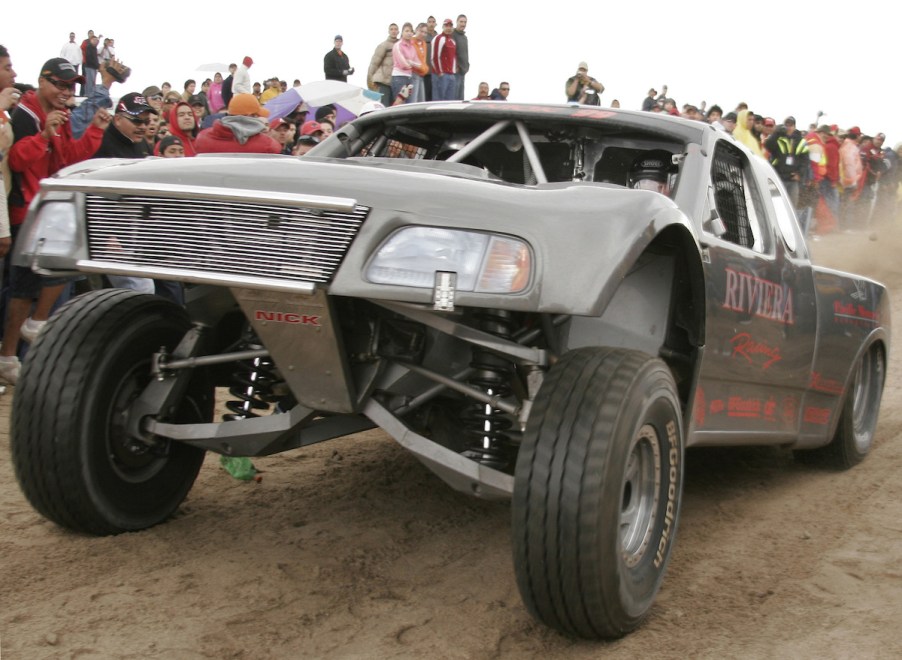
The Origins of the ‘Carolina Squat’ Aren’t in North or South Carolina
Unless you’re a car enthusiast, you probably haven’t heard of the “Carolina squat.” It’s a popular modification to pickup trucks where the suspension is raised in the front and often paired with larger tires and rims. The name suggests this trend originated in the Carolinas, but that’s not the case. So, where did the Carolina squat start?
The California connection

Interestingly, although squatted trucks are often associated with North and South Carolina, they originated in California. The trend was born out of Baja racing in California. Lowrider enthusiasts in Los Angeles during the 1990s developed this modification. They wanted to make their cars look more extreme by lowering them as close to the ground as possible (hence the term “lowrider”) while raising the front for off-road racing.
Later, this style rolled eastward across the United States and became known as the “Carolina squat,” HotCars reports.
The popularization of squatted trucks
Social media has helped fuel squatted trucks’ popularity across the nation. Today, countless accounts on Instagram and other platforms, some with hundreds of thousands of followers, show off these modified vehicles. Owners post photos of their trucks and share tips on how to get the perfect look.
Is the Carolina squat dangerous?
Yes, squatted trucks can be dangerous. The front end’s upward tilt makes outward visibility challenging, potentially resulting in collisions. In addition, the incline prevents headlights from adequately lighting the road and causes them to blind oncoming drivers. Squatting your truck can also wear out the suspension system faster.
The legality and safety of the Carolina squat
Despite their popularity, extreme Carolina squat modifications are illegal in the Carolinas due to safety concerns.
Under South Carolina’s law, passed in 2022, “vehicles lowered or raised more than six inches in front or back will be considered illegal, Steinberg Law Firm states. “The modification is not beneficial, particularly on the safety front, because it causes issues such as having a vehicle weight imbalance, worn-out tires, improper braking, and improper steering.”
Virginia also declared a ban on squatted trucks. Safety concerns involve the increased risk of rollovers due to a lack of stability when cornering at high speeds.
Other states might follow suit with similar bans on squatted trucks unless additional modifications include safety features such as suspension upgrades or sway bars and stabilizing bars.
Should you squat your truck?
Think twice before squatting your truck. Due to safety concerns, states have begun outlawing extreme Carolina squat mods or requiring other changes before vehicles are allowed on public roads.
So research your local laws before squatting your truck. Or consider other custom upgrades, like LED light bars, specialty tires, running boards, and heavy-duty bumpers.



